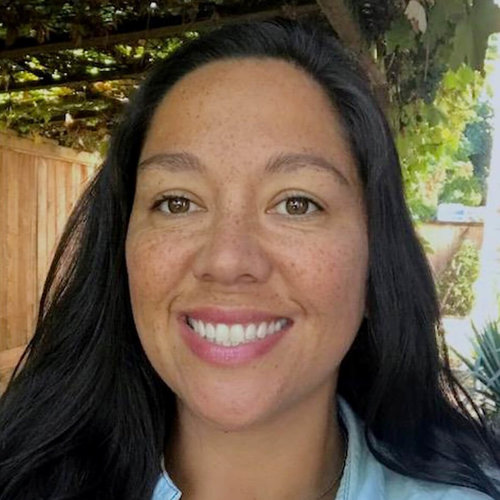30 September 2020 By Ashley McAllister
In our September newsletter, Zeenia Junkeer shares about the importance of disaggregated data and addressing systemic racism.

I want to begin by honoring the immense wisdom and strength of Native, Black, and Brown communities. Not just in this time of COVID-19, but always, many of us carry our ancestors with us and while the resilience we experience is undoubtedly tied to a long history of colonized, racist, and xenophobic policies, practices, and actions; it is also a result of the inherent strengths of our communities---rooted in intergenerational wisdom, collective care, and community-oriented practices.
Oregon passed HB 2134 in 2013, the Implementation of Race, Ethnicity, and Language, Disability (REAL-D) framework for disaggregated data which set the stage for a deeper understanding of communities across Oregon by allowing people to identify their race and ethnicity and offering many more options than the standard OMB five categories for race and ethnicity, in addition to language and disability questions.
In March, the data being collected across the state about COVID-19 positive cases, hospitalizations and deaths began to show trends that mirrored health inequities that long preceded Coronavirus: disproportionately impacting Black, Latinx, Pacific Islander, and Native communities. These impacts have more to do with the impacts and effects of systemic racism, capitalism, and oppression. What this means is that in times of a pandemic, natural disaster, and state-sanctioned violence, Black, Indigenous, and other people of color communities, immigrant of refugee communities and low-income communities will be hardest hit.
Our work as service providers, health care providers, organizers, advocates, public health champions, educators, and others working with communities, is to understand the impacts of systemic racism and a long history of oppression and violence by systems, in the name of health. Through this pandemic, the current uprising for Black Liberation, and the wildfires, there are a few themes I would like to offer for consideration, they are not new or solely my thoughts:
Director, Oregon Health Equity Alliance (OHEA)
Click here to read the rest of our September newsletter.
Sign up to receive future newsletters here.

I want to begin by honoring the immense wisdom and strength of Native, Black, and Brown communities. Not just in this time of COVID-19, but always, many of us carry our ancestors with us and while the resilience we experience is undoubtedly tied to a long history of colonized, racist, and xenophobic policies, practices, and actions; it is also a result of the inherent strengths of our communities---rooted in intergenerational wisdom, collective care, and community-oriented practices.
Oregon passed HB 2134 in 2013, the Implementation of Race, Ethnicity, and Language, Disability (REAL-D) framework for disaggregated data which set the stage for a deeper understanding of communities across Oregon by allowing people to identify their race and ethnicity and offering many more options than the standard OMB five categories for race and ethnicity, in addition to language and disability questions.
In March, the data being collected across the state about COVID-19 positive cases, hospitalizations and deaths began to show trends that mirrored health inequities that long preceded Coronavirus: disproportionately impacting Black, Latinx, Pacific Islander, and Native communities. These impacts have more to do with the impacts and effects of systemic racism, capitalism, and oppression. What this means is that in times of a pandemic, natural disaster, and state-sanctioned violence, Black, Indigenous, and other people of color communities, immigrant of refugee communities and low-income communities will be hardest hit.
Our work as service providers, health care providers, organizers, advocates, public health champions, educators, and others working with communities, is to understand the impacts of systemic racism and a long history of oppression and violence by systems, in the name of health. Through this pandemic, the current uprising for Black Liberation, and the wildfires, there are a few themes I would like to offer for consideration, they are not new or solely my thoughts:
- Health disparities and maltreatment by health care systems continue to impact communities who are often not in decision making positions in spaces to be able to impact how they receive services. How can we ensure a more meaningful voice from consumers in our work? What kinds of decisions are our advisory councils able to make? Are people compensated for their time?
- Discrimination including systemic racism, health care discrimination, and discrimination is systems such as housing, transportation, and justice impact health and ability to access health care. Each of our service providing organizations has a responsibility to address systemic racism. This means addressing the internal and interpersonal aspects of racism too.
- Health care accessibility which includes lack of meaningful access to care and lack of culturally affirming services continues to be a barrier for communities seeking care. How can each of our organizations, clinics, and bodies of work take steps to engage in more culturally affirming services?
- Wealth, income and educational disparities may lead people to not be able to take off work when ill or when caring for others. How are the services we provide in alignment with the resources, schedules, and accessibility needs of the communities we serve?
- Housing factors including living intergenerationally-- which can be protective factors, can also be a factor in transmissibility when services and resources aren’t set up to support families living intergenerationally. How can we better learn how to support and affirm cultural practices and not allow the narrative to further stigmatize communities?
Director, Oregon Health Equity Alliance (OHEA)
Click here to read the rest of our September newsletter.
Sign up to receive future newsletters here.

